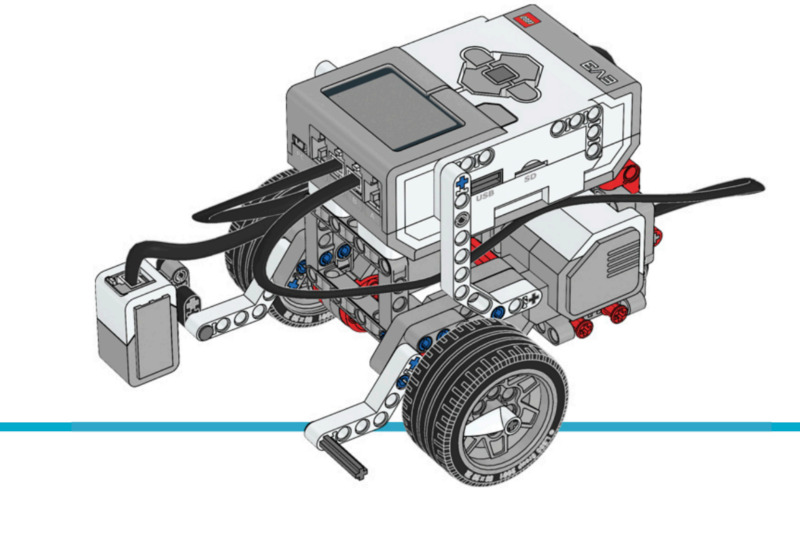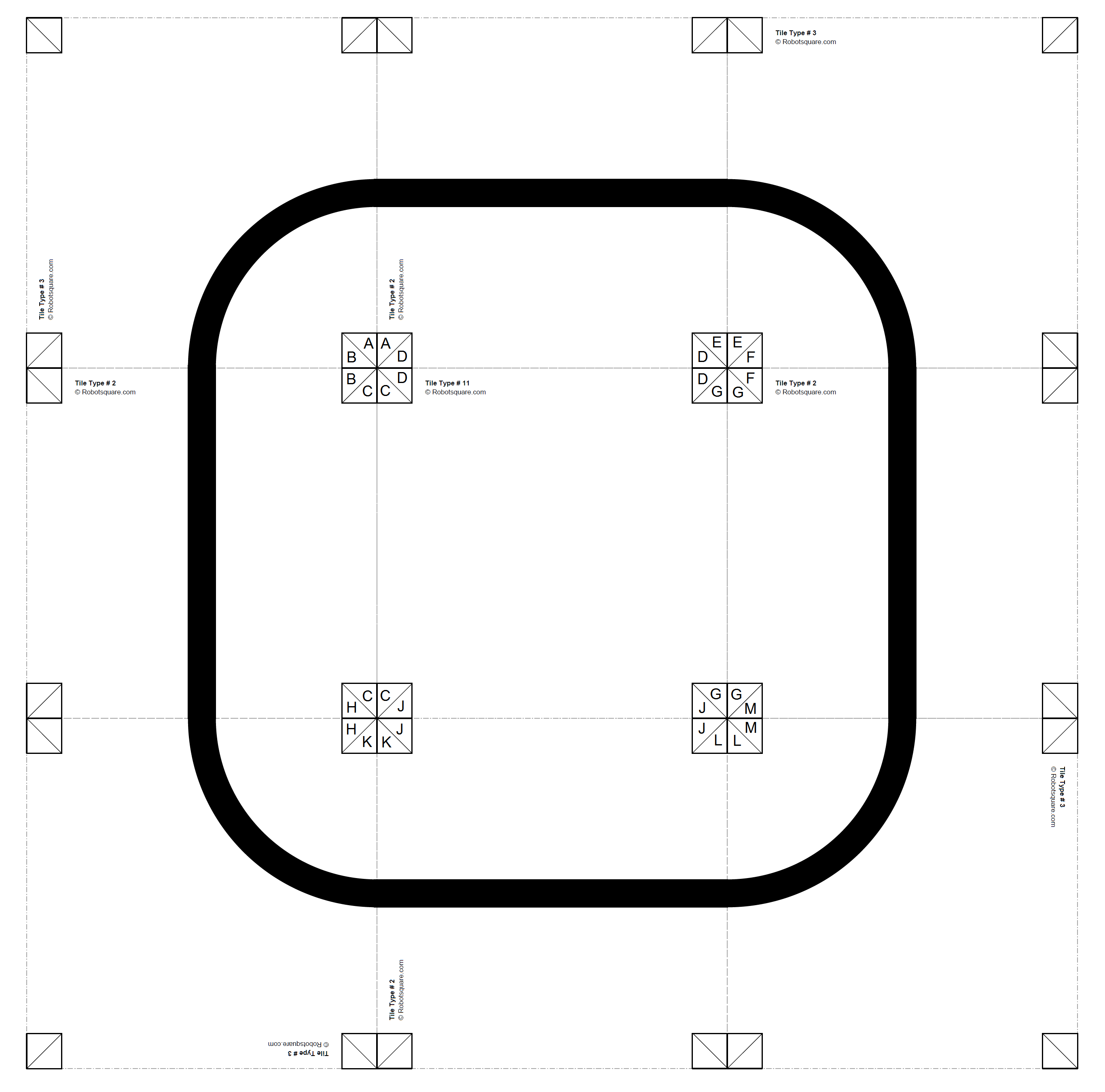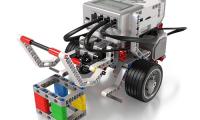循线
此示例项目展示了如何使用 ColorSensor 和 DriveBase 类。这是通过根据测量的反射偏离阈值的程度调整转弯率来实现的。选择阈值作为线反射和周围表面反射的平均值。
拼搭说明
在本站可查找 Educator Bot 的所有构建说明。

图 25 带有颜色传感器的机器人教育器
示例程序
此示例使用图 26 所示的轨迹,但您也可以调整此示例以遵循其他线条。使用下面的链接下载曲目后面的行并打印所需的页面。您还可以通过打印其他页面来创建自己的曲目。

图 26 下载跟踪页 2、2、2、2、3、3、3、3、3、11 页后面的行。
#!/usr/bin/env pybricks-micropython
"""
Example LEGO® MINDSTORMS® EV3 Robot Educator Color Sensor Down Program
----------------------------------------------------------------------
This program requires LEGO® EV3 MicroPython v2.0.
Download: https://education.lego.com/en-us/support/mindstorms-ev3/python-for-ev3
Building instructions can be found at:
https://education.lego.com/en-us/support/mindstorms-ev3/building-instructions#robot
"""
from pybricks.ev3devices import Motor, ColorSensor
from pybricks.parameters import Port
from pybricks.tools import wait
from pybricks.robotics import DriveBase
# Initialize the motors.
left_motor = Motor(Port.B)
right_motor = Motor(Port.C)
# Initialize the color sensor.
line_sensor = ColorSensor(Port.S3)
# Initialize the drive base.
robot = DriveBase(left_motor, right_motor, wheel_diameter=55.5, axle_track=104)
# Calculate the light threshold. Choose values based on your measurements.
BLACK = 9
WHITE = 85
threshold = (BLACK + WHITE) / 2
# Set the drive speed at 100 millimeters per second.
DRIVE_SPEED = 100
# Set the gain of the proportional line controller. This means that for every
# percentage point of light deviating from the threshold, we set the turn
# rate of the drivebase to 1.2 degrees per second.
# For example, if the light value deviates from the threshold by 10, the robot
# steers at 10*1.2 = 12 degrees per second.
PROPORTIONAL_GAIN = 1.2
# Start following the line endlessly.
while True:
# Calculate the deviation from the threshold.
deviation = line_sensor.reflection() - threshold
# Calculate the turn rate.
turn_rate = PROPORTIONAL_GAIN * deviation
# Set the drive base speed and turn rate.
robot.drive(DRIVE_SPEED, turn_rate)
# You can wait for a short time or do other things in this loop.
wait(10) EV3机器人
EV3机器人

